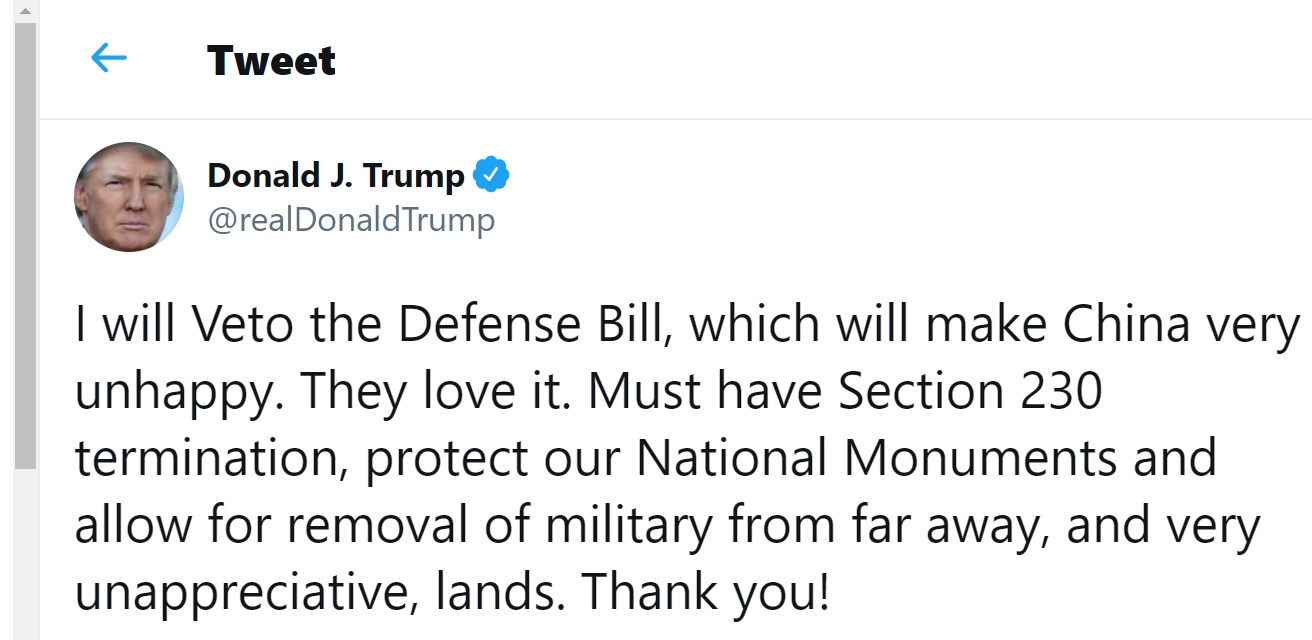Trump Again Threatens Section 230-Related Veto
Said he can't support must-pass defense bill without Web content regulation element

The smarter way to stay on top of the multichannel video marketplace. Sign up below.
You are now subscribed
Your newsletter sign-up was successful
President Trump Thursday (Dec. 17) once again threatened to veto a must-pass (and almost certainly will-pass) defense authorization bill over, at least in part, Section 230 of the Communications Decency Act.
Also Read: Trump Says He Will Veto NDAA
Tweeted: "I will Veto the Defense Bill, which will make China very unhappy. They love it. Must have Section 230 termination, protect our National Monuments and allow for removal of military from far away, and very unappreciative, lands. Thank you!."
The President previously tweeted that without amendments targeting Section 230, which provides immunity from civil liability for Web site third party content, he would veto the bill. Those amendments didn't make the final bill, which passed the Senate last week but had to be reconciled with the House-passed version.
The House passed that reconciled version Dec. 11 by a vote of 377 to 48. The Senate passed it Thursday (Dec. 17) by a veto-proof vote of 86 to 8.
The President wants the FCC to find a way to insure that such immunity is not used to shield Social media sites like Twitter and Facebook from censoring conservative content, something he and other Republicans have long said is happening.
The sites argue that there is no systemic anti-conservative bias and that they flag tweets on issues of importance if they are demonstrably false, deceptive, or unproven.
The smarter way to stay on top of the multichannel video marketplace. Sign up below.
Also Read: Sen. Graham Introduces Sec. 230-Killing Bill
While Section 230 is meant to protect platform hosts from liability for moderating content others post on their sites, the act of moderation if it includes flags or labels or outright removal should move those platforms into the realm of publishers, not neutral hosts, and should not get the liability shield, many Republicans argue.
Contributing editor John Eggerton has been an editor and/or writer on media regulation, legislation and policy for over four decades, including covering the FCC, FTC, Congress, the major media trade associations, and the federal courts. In addition to Multichannel News and Broadcasting + Cable, his work has appeared in Radio World, TV Technology, TV Fax, This Week in Consumer Electronics, Variety and the Encyclopedia Britannica.

